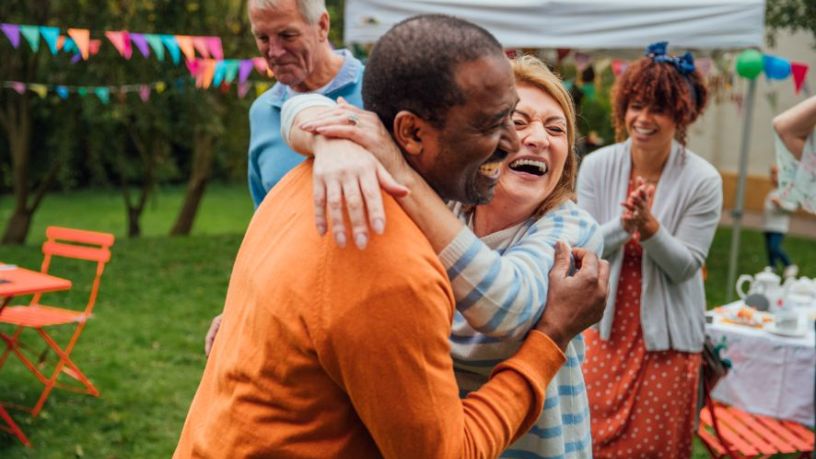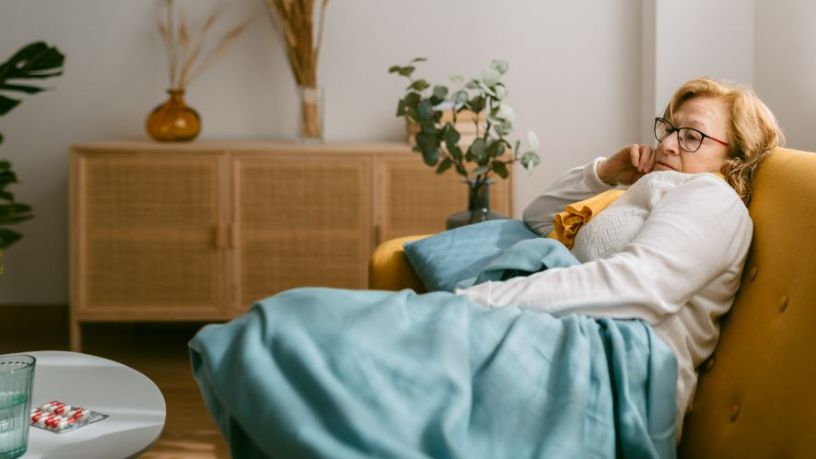Simplifying activities can help to make them less overwhelming and more accessible for your loved one.
Key takeaways
Music and photo albums can be a great way of connecting with someone.
Talking to your loved one’s care home can be a good way of helping them to reconnect with familiar activities.
Dementia can cause people to lose the skills or ability to do the things they once loved. But with a bit of help, it’s possible to help people reconnect with their past and trigger pleasant memories.
Here are some ideas to help you offer the right support.
Simplify the activity
Break tasks down into their simplest form. While someone who enjoyed knitting may no longer be able to knit a jumper or follow a pattern, they might like simply feeling wool or some knitted jumpers. Sensory activities may evoke familiar memories, spark conversations, or simply make the person smile.
Sometimes even watching an activity can be enough.
“Just observing others doing it, or even just looking through a book and listening to a group of people chat can be enjoyable,” says Dementia Consultant for Bupa Aged Care Australia, Ling Pang.
Use props
Using tactile props may help reconnect a person to past interests. If they enjoyed cooking, you could show them interesting ingredients or cookbooks with colourful pictures. If they loved playing cards but aren’t able to play a full game anymore, they might enjoy turning cards over in a mock game.
Listen to music
Music is a powerful way to bring back memories. It can also have a calming and uplifting effect on a person living with dementia.
“Many people with dementia who used to play musical instruments somehow retain that ability,” says Pang. “They may not remember the words to a song, but they can remember the tune.”
Make a photo album
Showing someone an old photo album can be a lovely way to talk about the past. It may also help memories surface.
“While it can be difficult to remember a person’s name, sometimes seeing a picture can bring a sense of familiarity and comfort,” says Pang. “Going through photos together can be a great way to enhance a conversation.”
Talk to the care home
Care staff may be able to arrange a special outing or start a new program. At Bupa Aged Care in Ashfield, maintenance officer Sammy Wood regularly takes interested residents into the garden or workshop. He’s even developed a mobile tool trolley, so residents can tinker with the tools.
Being able to share someone’s life story and interests with a care home can help them find ways to connect with someone with dementia.

At Bupa, trust is everything
Our health and wellbeing information is regularly reviewed and maintained by a team of healthcare experts, to ensure its relevancy and accuracy. Everyone's health journey is unique and health outcomes vary from person to person.
This content is not a replacement for personalised and specific medical, healthcare, or other professional advice. If you have concerns about your health, see your doctor or other health professional.
You might also like...
5 practical tips to help you care for someone with dementia
Life as a carer for someone living with dementia can be exhausting, both mentally and physically. We’ve put together some practical tips which may help.
4 ways to prevent carer burnout
Being a carer can take its toll, and it’s important to find ways to look after yourself. Discover how you can help prevent burnout with 4 helpful tips.
The importance of staying social as you get older
Having a good social life is fun, but did you know it can also be important for mental health too?
5 tips to manage incontinence
We share 5 simple steps you can take to help control incontinence.





